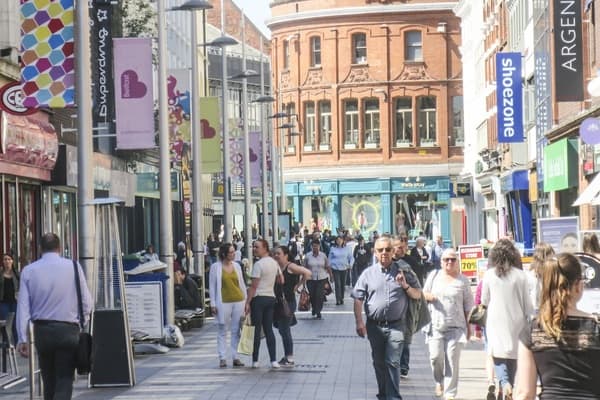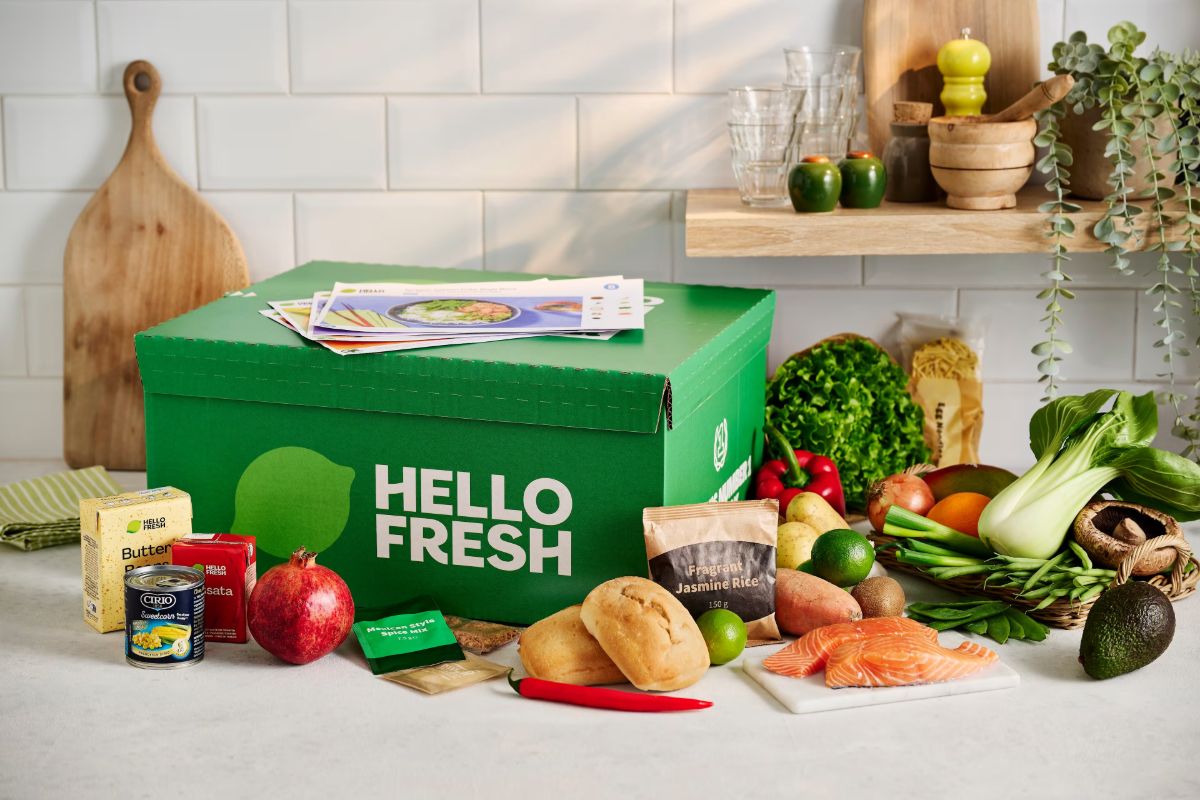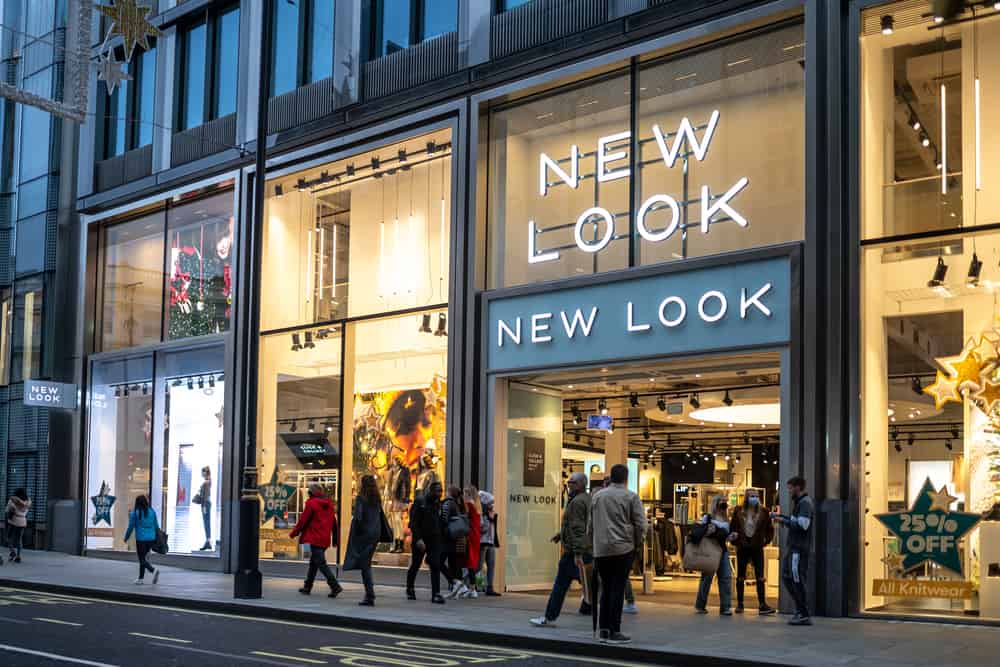Retail sales appeared to get closer to pre-pandemic spending patterns last month, as online sales fell by 8% year-on-year while in-store sales grew by 7.9% in the three months to October. Total retail sales growth for the month came in at 1.3%, compared to the same time last year.
The 8% fall in ecommerce non-food sales, shown in the latest BRC-KPMG Retail Sales Index, is below the three month average of 6.1%.
But as yet, the ‘new normal’ includes a greater proportion sales taking place online than before the pandemic, while fewer sales are taking place in-store than before the pandemic. Some 42% of non-food sales took place online in October. That’s 5.2 percentage points (pp) lower than the 48.8% of sales that were online a year earlier – but 10.4 percentage points up on the 31.6% of sales that were online in October 2019.
Meanwhile, in-store sales grew by 7.9% in total in the three months to October, and by 4.5% LFL. However, they remain 2% lower than pre-pandemic October 2019, and 4.4% lower LFL.
“Confident consumers are heading to physical stores to make purchases, as online sales fell yet again in October, although with penetration rates at 42% online shopping remains significantly higher than pre-Covid-19 levels,” says Paul Martin, UK head of retail at KPMG. “The much reported squeeze on household spending has yet to materialise as consumers seem happy to carry on shopping.
“Limited availability of stock has created strong pricing dynamics, which means we are unlikely to see any big discounting this Christmas, and many retailers will be hoping consumers are willing to buy the most sought after gifts at any price. With rising costs putting a strain on most retailers, they will be placing all hopes that demand remains strong as consumers plan for a bumper Christmas, shopping early for those much wanted gifts and spending more than last year when Christmas gatherings were cancelled. The main concern is now how trade will develop post-Christmas into 2022.”
In total, UK retail sales grew by 1.3% in total in October, compared to the same time last year, but fell by 0.2% on a like-for-like basis that strips out the effect of store openings and temporary closures, the latest BRC-KPMG Retail Sales Index suggests.
Helen Dickinson, chief executive of the British Retail Consortium, says: “Customer demand is getting back on track ahead of Christmas as sales grew at a faster rate than the month prior, and well above its pre-pandemic levels. As social calendars started filling up with festivities, clothing and footwear sales performed well. Meanwhile, furniture and electrical sales were held back by global logistical issues and microchip shortages. With Halloween heavily curtailed by the pandemic last year, chocolates and children’s costumes sold a treat as families made the most of the occasion.
“Some people started their Christmas shopping early with beauty advent calendars flying off the shelves and searches for Christmas items ramping up online. Retailers are doing everything they can to offer customers the choice and availability required throughout the industry’s busiest period, prioritising the food and other festive products needed to celebrate. Retailers are hopeful that demand will continue right through the golden quarter, however, there are challenges ahead with higher prices on the horizon compounded by the many increasing costs faced by consumers such as higher energy bills and rising national insurance.”
Food sales grew by 1.5% in total, and by 0.3% LFL. Non-food retail sales grew by 1.8% in total – below the 12 month average of 14.9% – and fell by 0.1% LFL. Non-food sales were also 7.4% ahead of two years ago, in the three months to October.
Shoppers spending more – but concerned about inflation
Meanwhile, figures from Barclaycard suggest that UK adults spent 14.2% more on credit and debit cards in October, with spending up on both essential goods (+13.2%) – including at supermarkets and other food and drink shops (+14.2%) – and on non-essential goods – including online takeaways (+127%) and digital content and subscriptions (+38.6%). Online spending at toy shops and child-focused stores (+38.4%) also rose, probably ahead of Christmas.
Almost nine in 10 (88%) of 2,000 consumers, questioned in a poll by Longitude Research on behalf of Barclaycard, said they were worried about the effect of inflation on there finances, while 89% are concerned about the impact of rising bills on their finances. More than a third (34%) said they were concerned about shortages, of whom 52% say they are buying Christmas presents earlier than usual. Almost three in 10 (28%) will do that by buying during Black Friday or other seasonal sales.
Jose Carvalho, head of consumer products at Barclaycard, says: “The expensive festive period on the horizon, combined with ongoing concerns around the impact of inflation and supply chain shortages, has meant we’ve seen steady yet cautious spending from consumers in October.
“While the uncertainty around rising household bills appears to be weighing on Brits’ minds, the encouraging growth we’ve seen in entertainment and international travel shows that consumers are still keen to enjoy leisure activities and holidays. As the nation continues its Christmas shopping and gears up for Black Friday and other sales, we’re confident that November should bring some welcome cheer to retailers.”









